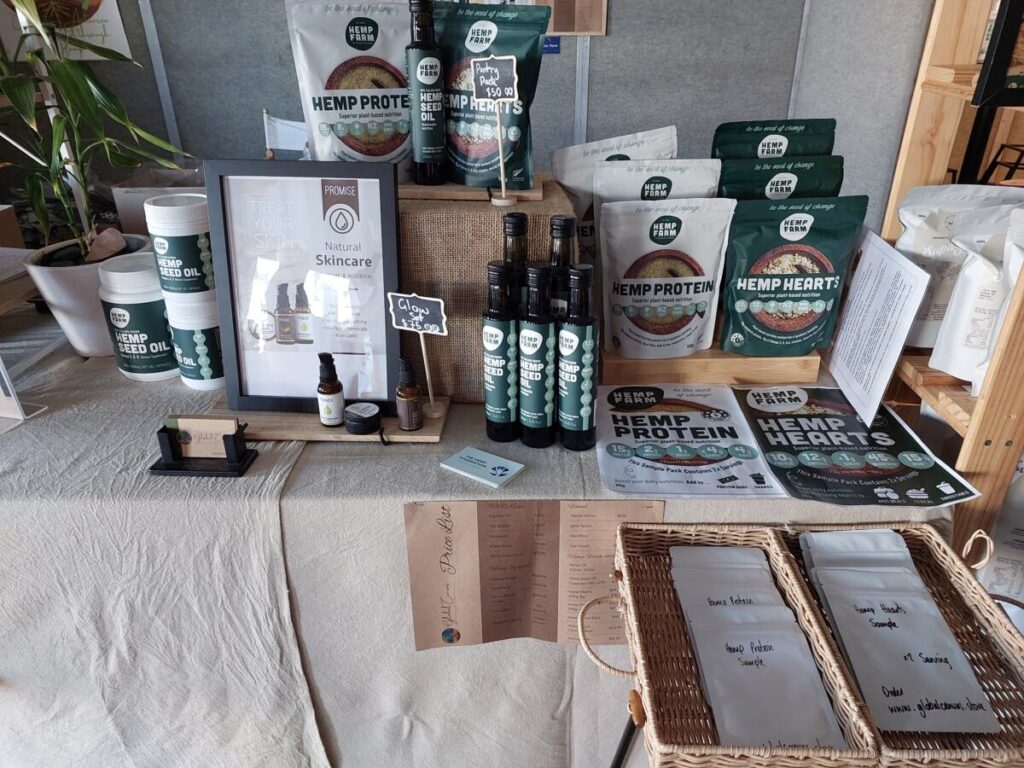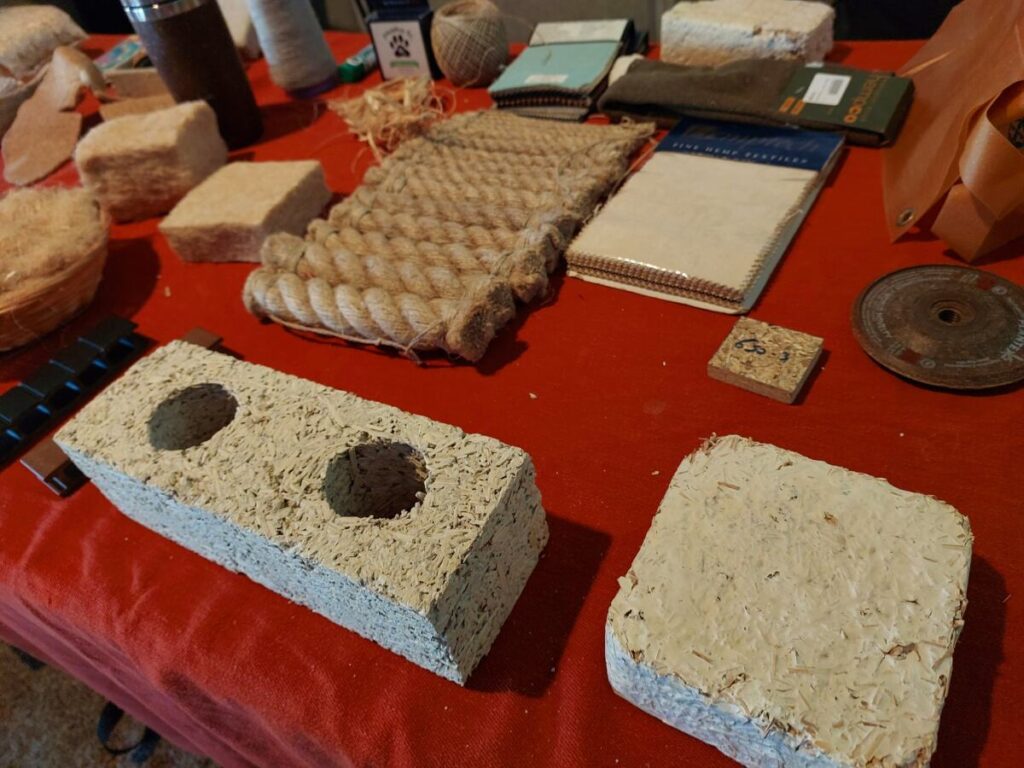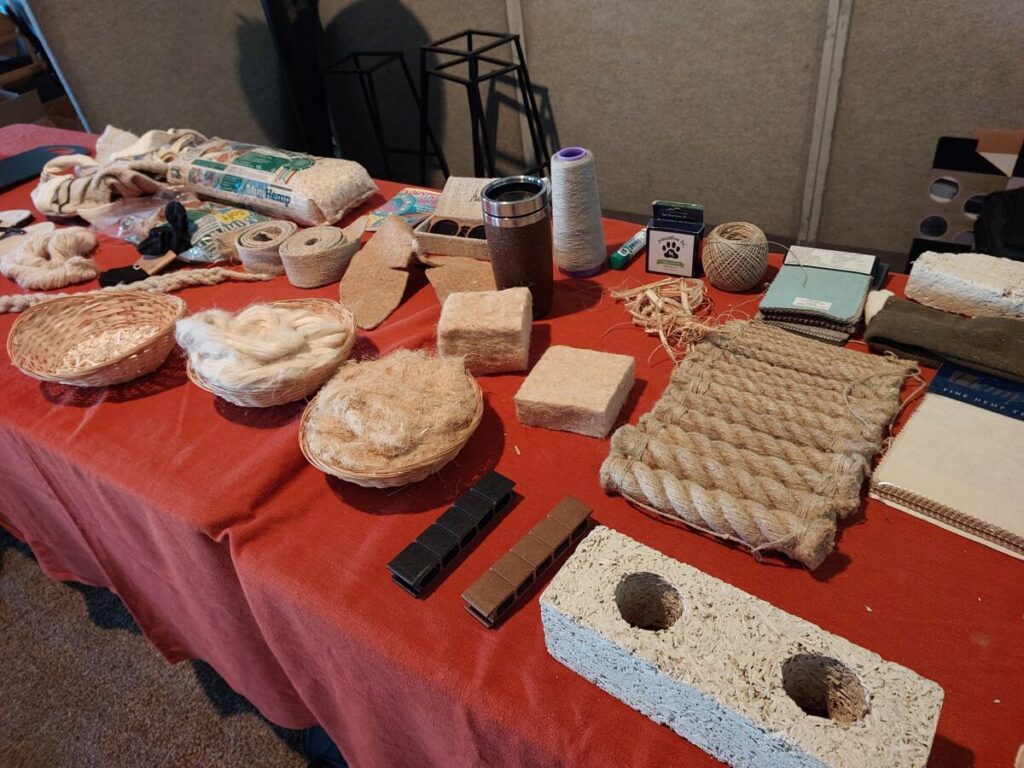Call to embrace hemp
The New Zealand Hemp Industries Association aims to support the development and growth of New Zealand’s hemp industry. Wintec | Te Pūkenga student Sarah Morcom spoke to members of the association at Fieldays 2023.

Photo: Sarah Morcom
The New Zealand Hemp Industries Association was at Fieldays this week with a message that hemp could be the answer to all our problems.
The not-for-profit association has been running since 1997, and its mission is to ensure Aotearoa New Zealand is informed about the benefits of hemp.
Spokesperson Richard Barge explained the benefits of hemp, and how it has potential to mitigate issues like climate change and the housing crisis.
“We look at it from a food, fibre, and health point of view,” he said.
Food made from hemp is usually created using the seed and sometimes the outer leaves as well, Barge said. Over 50,000 products can be made from the fibre, including bio-fuel for cars, installation and materials for housing, decking materials, clothing, and many health products.
It’s also a sustainable material, said Barge.
One of the products the association had on display at Fieldays was a hemp-based polystyrene substitute with a mushroom mycelium binding agent. This product is biodegradable, and could replace polystyrene, which takes around 500 years to decompose.

Photo: Sarah Morcom
The association aims to grow and develop New Zealand’s hemp industry, and emphasise the benefits of industrial hemp.
However, it’s not always an easy task, said another member, Racqual Duffy.
“At the moment we really need to get the government on board, bring down some of those barriers we are facing,” she said.
The barriers Duffy referred to are mostly around growing and advertising the natural fibre.
It is an offence to advertise hemp products, and a licence must be acquired from the health ministry to grow industrial hemp.
Conversation around hemp is also often met with disinterest and stigma, said Duffy, whose business often comes up against barriers.
“The biggest misconception is that it’s marijuana.
“Unfortunately not many people want to talk about marijuana, so as soon as you bring it up to try to differentiate between the two, people lose interest”.
Hemp is an industrial crop with a THC level below 0.35 per cent – it has no value as a recreational drug.

Photo: Sarah Morcom
Barge said that the regulations and restrictions around farming hemp make it hard for the association to spread the word about the benefits of industrial hemp.
“Regulations put farmers off from growing hemp, because they have to get a licence before buying a crop,” he said.
“By 2030 we could have a half a billion dollar industry just based on food and fibre. And we could have another $1.5 billion based on health and wellness”.
Duffy said hemp has been shown to reduce chronic pain, and lubricate the body’s joints and it had skin, hair and heart benefits.
Barge said New Zealand was a great place for a thriving hemp industry, and he wanted the country to embrace the multi-purpose natural fibre.
“New Zealand is well regarded as a food producer. So applying that same mindset, and enhancing that clean green image, this could be something of value to us as a country”.
The 2023 NZHIA Summit will be hosted Rydges Latimer Christchurch on the 24th and 25th of August.




